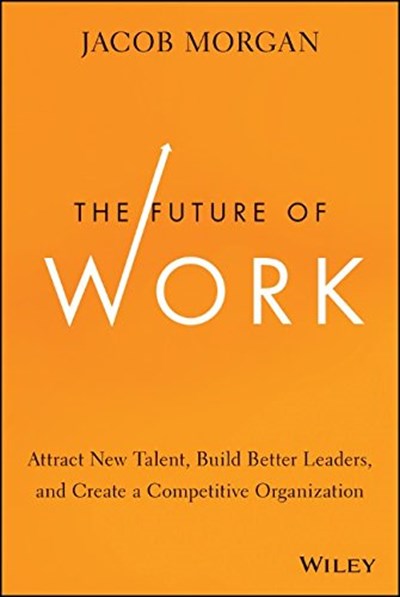Uncategorized Posts
-

Blog / Interviews
A Q&A with Jacob Morgan
By 800-CEO-READ
"Everyone always talks about the customer but in my opinion change must start from the inside first. . .
Categories: interviews
-

Blog / Interviews
Jacob Morgan
By 800-CEO-READ
"[M]ost organizations and managers today focus on the amount of time that employees appear to spend doing something and not on what they actually produce. This has to change. Just because employees are “putting in hours” doesn’t mean anything.
Categories: interviews
-

Blog / News & Opinion
ChangeThis: Issue 120
By 800-CEO-READ
Creating a Coaching Culture: A Playbook to Build Winning Business Teams by Nathan Jamail “In business, most of our employees are not as good as they could be—not because of our love for them or our desire to make their lives better than ours, but . . .
Categories: news-opinion
-

Blog / ChangeThis
Improvise Your Way to Success
By Steve Yastrow
"Consider the last time a hard sell worked on you—or when you were last 'convinced' to do something. Having a hard time coming up with an instance? While a common sales practice, an overt sales pitch is more likely to cause a customer to run rather than to buy. [...] The bottom line is that no one wants to be assaulted by one-way communication (a sales pitch). Rather, customers need to be invited into two-way conversations where we can be heard and understood. Whether you're selling a product, your services, or yourself—you must learn to persuade differently in order to close more deals. You must learn to ditch the pitch."
Categories: changethis
-

Blog / ChangeThis
Harvesting the Low-Hanging Fruit: The Easy Road to Higher Earnings
By Jeremy Eden, Terri Long
"The blinding rate of innovation over the past few decades has turned yesterday's 'impossible' into today's 'of course.' But one area has experienced a near complete lack of innovation over that same time period: the ways executives manage and problem solve have barely changed. In fact, management innovation has done little to nothing to ease the burden of dealing with the growing complexity and decreasing resources that most large companies face. The key to innovating management practices lies with two old terms that frankly are now rather tired, due in no small part to the fact that so few companies do either of them well for extended periods of time. Those two terms, inextricably linked, are employee engagement, without which you will not succeed at the second, which is continuous improvement."
Categories: changethis
-

Blog / ChangeThis
Sell Yourself First
By Tom Hopkins, Ben Katt
"People buy you first. It doesn't matter if you're meeting people for the first time in a social or business situation, you won't get far unless you sell yourself first. This comes as a surprise to many people who just show up without thinking about the impression they make on others. In the case of sales professionals, they may prepare their presentations well, but not pay as much attention to preparing themselves as to how they, personally, come across to potential clients. The basic premise of this article is that 'it matters. ' It matters if you show up 20 minutes early (awkward in social situations), 10 minutes early (usually appropriate for business), on time (okay in social situations, maybe not for business) or 10 minutes late (never acceptable). It matters if you're dressed and groomed appropriately—including whether or not you're wearing the right shoes (and that they're in good condition). When you want to capture the attention of others and have them view you as a competent individual, dress and act like one—appropriately for the situation in which you're meeting them.
Categories: changethis
-

Blog / ChangeThis
Generation We: Why Me Doesn't Work for One and Everyone, and What We Can Do to Change It
By Steven Smith, David Marcum
"Why does society tend to work in opposition to we if we is clearly a superior strategy? Why don't human beings make stronger moves to get past me ... ? Because psychologically and historically, me is a durable way to survive and succeed. Politics and business are competitive and capitalistic. Head-to-head, me appears to be the most viable strategy. But perception isn't reality. Social science and history expose me as a less steady way to survive, and a fragile way to thrive. And when me leaves work and goes home, stakes can get even higher. Emotions are closer to the surface. Love is deeper. Commitments are stronger. Me collapses entirely as a carryover strategy from boardrooms to living rooms."
Categories: changethis
-

Blog / ChangeThis
Beyond Keeping Afloat: How Established Business Can Get Breakthroughs
By Tony Davila, Marc J. Epstein
"There is a common myth, told and retold, from the boardrooms of industry-dominating behemoths to the opinion columns and business pages of newspapers and magazines. It's a myth that litters the internet, and strikes fear in the heart of many an established executive. While it may seem like reality to many, this myth is actually more like a distortion of reality, often caused by a kind of inadvertent, self-imposed blindness—a willful, if unintentional, shoe gaze of sorts. The myth goes like this: large, established organizations can't get breakthrough innovations on their own. Breakthrough innovations, it says, are the domain of feisty, scrappy, nimble startups. Companies that once graced headlines as models of homegrown innovation, once they reach a certain point, it seems, often believe themselves incapable of developing the types of innovations that disrupt markets or even create entire new ones—the kinds of innovations that can radically change the outlook of a company, or even the world, when successful.
Categories: changethis
-

Blog / ChangeThis
Creating a Coaching Culture: A Playbook to Build Winning Business Teams
By Nathan Jamail
"Growing up, most of us had to learn how to defend ourselves and think for ourselves. And, if you were anything like me, you had to learn the hard way—paying the consequences for bad decisions (and, for me, there were many). As parents, we try to remove every struggle we endured growing up, so they don't have to struggle the way we did, and yet those hard times and struggles are most likely exactly what made us who we are today. It is our responsibility just to help see them through those struggles and help them learn and grow from them. The same can be said for business today. And, in business, most of our employees are not as good as they could be—not because of our love for them or our desire to make their lives better than ours, but for the exact opposite reason. It is because most of the time we think they are not worth the effort to really coach them."
Categories: changethis
-

Blog / News & Opinion
Authors On the Road, Changing the World - John Hope Bryant
By Aaron Schleicher
In the rapidly changing world of technology and the way we utilize that technology, we often forget many of our institutions were built over the phone, forming relationships with the people with whom we wanted to do business. In a group meeting here this week, our retired founder and president Jack Covert made the argument that if we want to maintain our current relationships better than our competitors and add something to their lives that others don't, we need to pick up the phone and have a real conversation with these people we value. We are fortunate that our business is still very much a people-orientated service company that really enjoys those breaks in the email or social media chain, and we’re lucky to have formed relationships with authors and institutions who uphold that same type of “old school” ethos.
Categories: news-opinion

